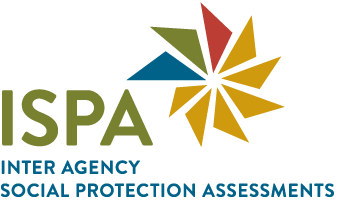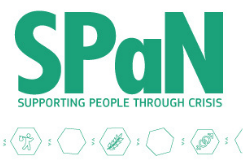
ISPA tools support countries in building coherent social protection systems, ensuring complementarity between initiatives, coordination across sectors, sufficient scale for addressing needs as well as strengthening effective and efficient service delivery systems. ISPA tools have been developed by the world’s leading social protection specialists from more than 20 international organizations and development partners, with strong partnerships from Governments (Web site currently under maintenance).
The European Commission created a Guidance Package on Social Protection across the Humanitarian-Development Nexus (SPaN) to provide concrete and practical guidance to social protection as an effective short- and long-term response to multivariate shocks, protracted crises and displacement based on the current body of knowledge, including brief definitions and processes of social protection approaches in most challenging settings. SP&PFM contributed to the Guidance Package through collating their relevant experiences into five briefs. Access the briefs here.
UNICEF country offices in Eastern and Southern Africa develop budget briefs to analyze the size and composition of national budget allocations to sectors that matter most for children (e.g. education, health, social protection, water and sanitation) in the current fiscal year as well as offer insights into the efficiency, equity and adequacy of past spending. The main objectives include synthesizing complex budget information so that it is easily understood by different stakeholders and putting forth key messages and recommendations to influence public financial decision-making processes and leverage domestic resources for children. Access the Social Protection Budget Briefs.


